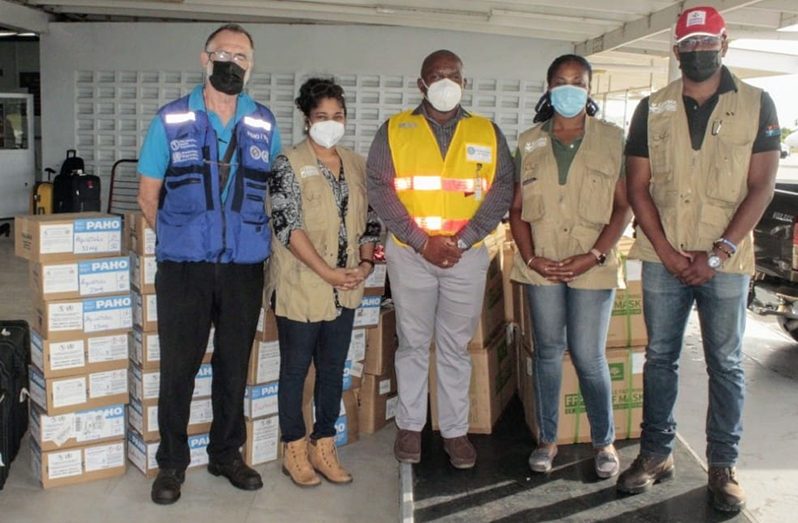WORK is expected to start next Wednesday on a Detailed Damage Sector Assessment (DDSA), which will evaluate the extent of the damage caused by the current flooding, and analyse the estimated recovery cost. The assessment will be conducted by a mission from the Caribbean Disaster Emergency Management Agency (CDEMA), in collaboration with Guyana’s Civil Defence Commission (CDC). Members of the CDEMA team are expected in Guyana on Tuesday, CDC Director-General, Lieutenant Colonel Kester Craig said during a virtual press conference on Friday. The DDSA will be focusing on the analysis of the health, water and sanitation, infrastructure and housing, agriculture, social, shelter and mining sectors, with emphasis on how these sectors are being affected in Regions Two (Pomeroon-Supenaam), Five (Mahaica-Berbice), Six (East Berbice-Corentyne), Seven (Cuyuni-Mazaruni), and Ten (Upper Demerara-Berbice), which are currently the most affected of the country’s ten administrative regions.

“Such an assignment is very comprehensive and require experts, and would take a number of days to be conducted,” Craig explained.
All of the necessary stakeholders who will need to contribute to the team’s data gathering have been given notice that the assessment is scheduled to be conducted.
“Letters are going out, as we speak, to all key sectors to alert them of the support that is required, and also have them provide pre-impact information. Information on the current impact is also required,” Craig said, adding: “The teams will spend several days in each region. All efforts will be made to meet with the stakeholders on the ground, to get the necessary data and information to give that estimation that is required.” The assessment will see five teams being deployed to the five regions at reference to conduct assessments of all of the identified sectors. Each team will include specialists specific to each sector that needs to be assessed.
SECTOR BY SECTOR

“They will conduct the assessment, sector by sector. Technical experts will go into the regions, and with that assessment, we will get a general understanding of the economic loss and damage, and to also help with early recovery,” Craig noted.
The assessment teams will include experts from a number of United Nations (UN) agencies, including the United Nations Development Programme (UNDP), United Nations Children Fund (UNICEF), the Food and Agriculture Organisation (FAO), and the Pan-American Health Organisation (PAHO, as well as representatives from several Caribbean agencies.
An advance team with members from CDEMA, the Regional Security System, and PAHO arrived in Guyana on Thursday, and held a planning meeting with officials from the CDC to discuss the logistics of how the assessment will be carried out.
The advance team was led by Programme Manager, Joanne Persad, and also included Programme Manager Rasheed Pinder, RSS Disaster Management and Humanitarian Assistance Officer, Keisha Linton, and PAHO’s Water, Sanitation and Hygiene (WASH) Adviser, Adrianus Vlugman.
Craig led the CDC’s team, which included Preparedness and Response Manager, Major Salim October; Senior Preparedness Officer, Captain Lakshman Persaud; Mitigation and Recovery Manager (acting), Alana Walters; and Logistics Manager, Captain Michael Andrews.
During the meeting, the CDC gave the CDEMA officials a thorough overview of the data that has been gathered thus far on the flooding situation here in Guyana, as well as the gaps that still exist and challenges being faced in data gathering.
Persad expressed CDEMA’s commitment to assisting Guyana in whatever way possible, as the country continues to deal with the national disaster.
“We want to make sure our presence here adds value not only to our work, but to the next step. That’s critical for us at the end of the day,” Persad reassured the CDC officials.
She also emphasised the important role that the assessment report will play, once completed, in helping Guyana with requests for external aid.
“What the report does, is it supports the access to financing; it supports projects and programmes, long-term recovery and initiatives. It’s the evidence and justification for accessing aid,” she stated. The report will also look at recommendations of what systems can be put in place, if any, to mitigate any future such occurrences.




.png)









